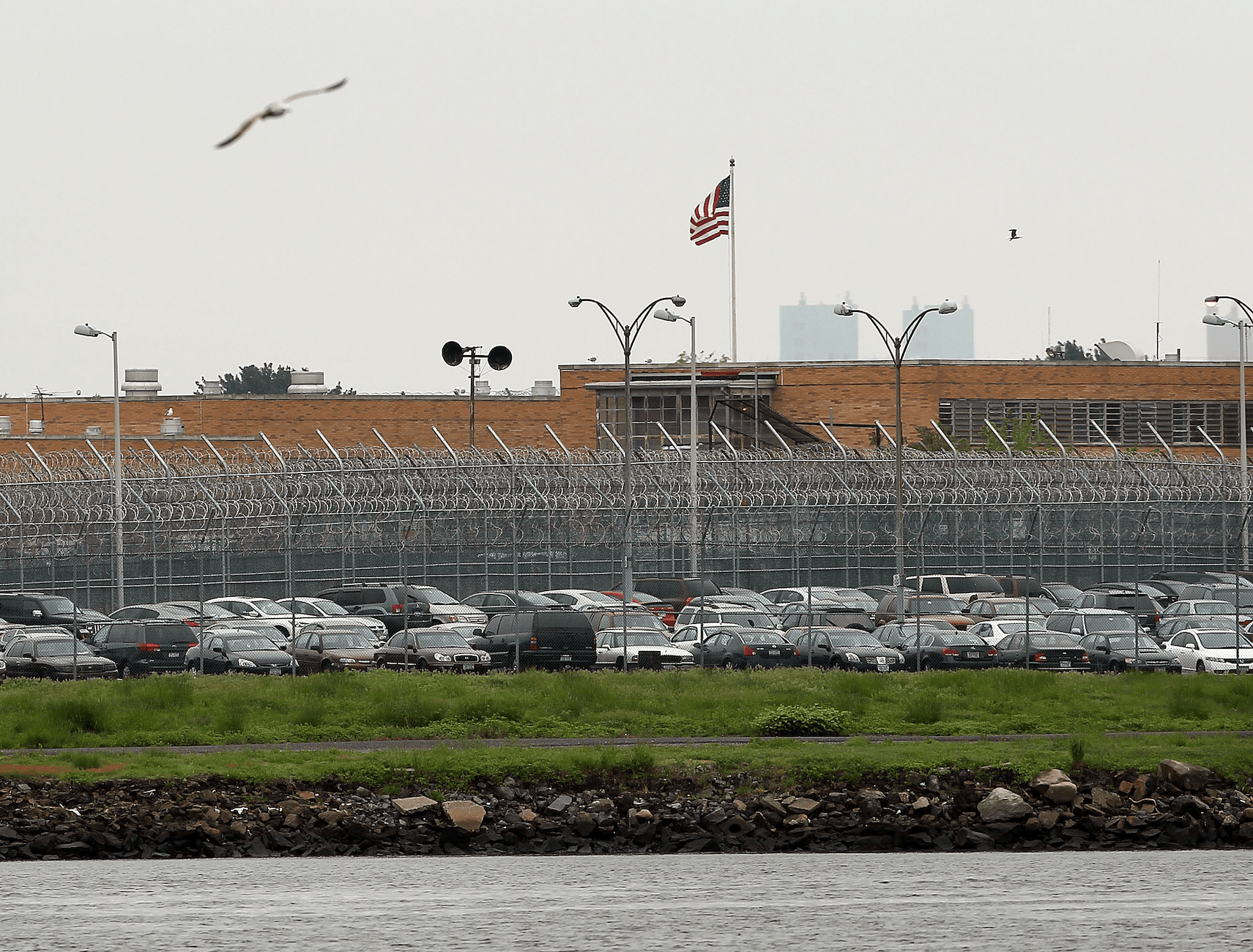New York City Jails Have an Alarmingly High Infection Rate, According to an Analysis by the Legal Aid Society
“Based on this analysis, New York City jails have become the epicenter of COVID-19,” a Legal Aid attorney said.

The novel coronavirus is spreading through New York City jails much faster than through the city as a whole, according to an analysis released yesterday by the Legal Aid Society.
The infection rate at city jails is 14.51 per 1,000 people, according to the analysis. That’s more than seven times higher than the rate in New York City, which has become a national epicenter of the pandemic, and where about 2 of every 1,000 people are infected.
As of Thursday morning, more than 20,000 people in the city had tested positive for COVID-19 and 280 had died. In the U.S. as a whole, more than 68,000 people have tested positive for COVID-19, though testing has been slow to become widely available in much of the country.
As of March 25, 75 incarcerated people and 37 correctional staff in New York City jails have tested positive for COVID-19, according to Legal Aid.
“Based on this analysis, New York City jails have become the epicenter of COVID-19,” said Tina Luongo, attorney-in-charge of the Criminal Defense Practice at Legal Aid, in a statement. “It is imperative that Albany, City Hall, our local District Attorneys and the NYPD take swift and bold action to mitigate the spread of this deadly virus. Stop sending people to Rikers and let these New Yorkers out immediately.”
According to the New York City Department of Correction, more than 700 people have been released since March 16.
“We are committed to keeping everyone safe and healthy, and working with Correctional Health Services to test anyone with symptoms and getting them the care they need,” Peter Thorne, the department’s deputy commissioner of public information, said in a statement.
But much more needs to be done, says Legal Aid, which is calling for the release of the more than 5,000 people incarcerated in the city’s jails, the majority of whom are held at Rikers Island. According to the city department of correction’s report on July through December 2019, at which time the jails’ daily population was at almost 7,000, approximately 24 percent were incarcerated for four days or fewer.
Failure to release those in the city’s jails will be particularly devastating for communities of color, said Molly Griffard, equal justice works fellow at Legal Aid. Between July and December 2019, more than half of the city’s jail population was Black, according to the city department of correction.
“People who are incarcerated on Rikers are overwhelmingly low-income people of color who are there often for a short period of time and going back to low-income communities of color across New York City,” said Griffard. “What that means is it makes those communities even more vulnerable to the spread in a way that wealthy white communities that don’t have as much contact with folks at Rikers aren’t going to have.”
The Board of Correction, which provides oversight of the city’s jails, has also urged New York’s leaders to release people. “The best path forward to protecting the community of people housed and working in the jails is to rapidly decrease the number of people housed and working in them,” wrote Interim Chair Jacqueline Sherman in a letter dated March 21 to the city’s district attorneys, Chief Judge Janet DiFiore, the New York City Department of Correction, and the New York State Department of Corrections and Community Supervision.
The city should work to release the 666 people who are incarcerated for technical parole violations, such as missing curfew or a meeting with a parole officer, wrote Sherman. An additional 551 people are serving a sentence of less than a year for a low-level offense, according to her letter. “The Mayor must use his executive powers to release these people,” she wrote. The mayor’s office did not respond to a request for comment.
Legal Aid has filed several lawsuits seeking the immediate release of hundreds of incarcerated people, warning that the virus will spread quickly inside the city’s jails where thousands live in close quarters, share sinks, showers, and toilets, and often lack the most basic hygienic supplies.
Several clients have reported that they do not have access to soap or hand sanitizer, and that officers have told them to buy soap from the commissary, according to a letter sent on March 13 from Legal Aid to the New York City Department of Correction Commissioner and the mayor’s office. One client reported that, according to the letter, he was in the intake receiving room for several days with “dozens of other people.”
“He said it was extremely dirty and was not cleaned at any time that he was there,” wrote Justine Luongo, Attorney-in-Charge of Legal Aid’s criminal defense practice.
In a suit filed yesterday in New York State Supreme Court, Bronx County, Legal Aid is seeking the release of over 100 people. The petitioners are both vulnerable to COVID-19 complications and are being held on technical parole violations. They include those who suffer from asthma, heart disease, or have a history of seizures. One person is pregnant. Their ages range from 23 to 73.
One petitioner, a 24-year-old father who suffers from asthma, missed curfews and reporting during his partner’s high-risk pregnancy, according to the petition; their baby is still in the Neonatal Intensive Care Unit. Another petitioner, who is 61, suffers from cirrhosis of the liver, is attached to a catheter, and uses a cane, according to the petition.
But keeping anyone in the city’s jails, with or without medical complications, puts countless lives at unnecessary risk, said Griffard.
“No one should be there,” she said. “Anything but extreme measures is too little, too late.”
This story has been updated with a statement from the New York City Department of Correction.
